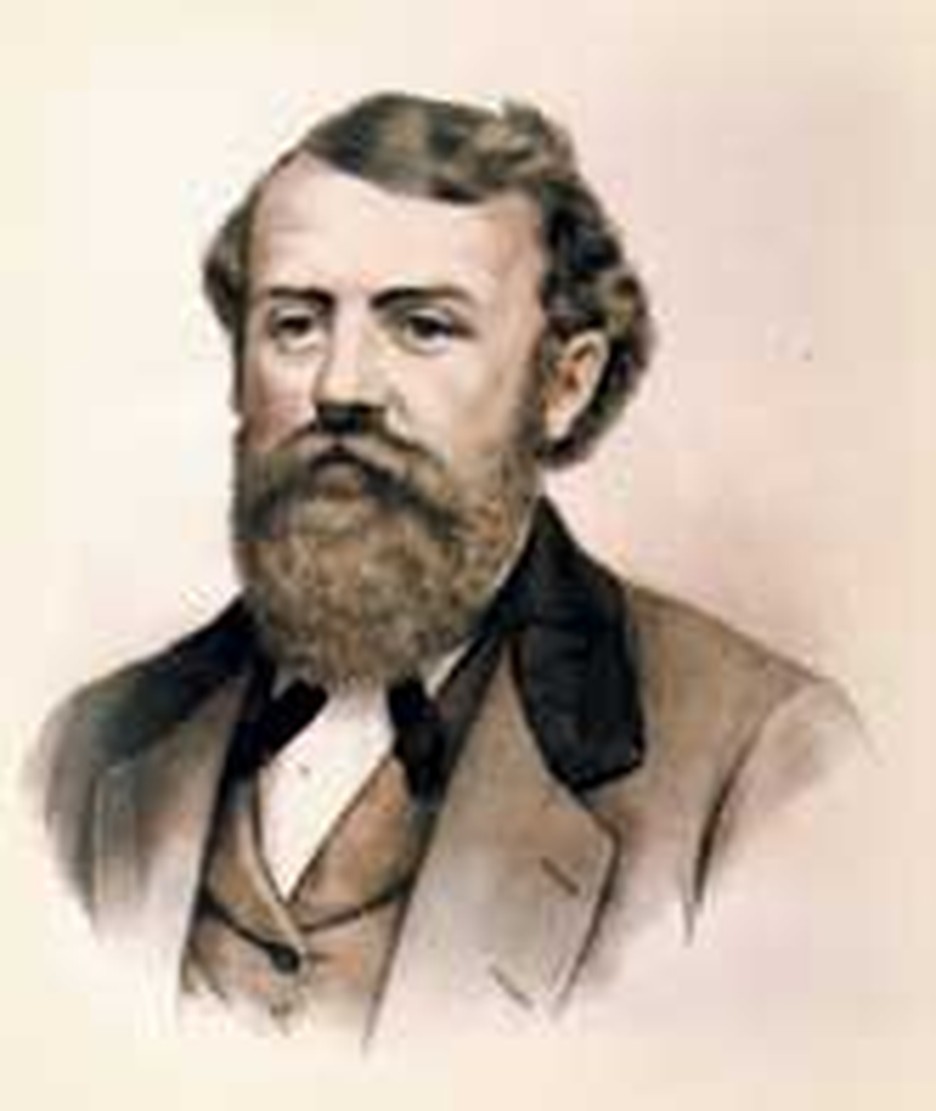
Until 1865, the churches in North America tended, more instinctively than we do today, to seek an outpouring of revival from God to awaken his people from spiritual lethargy.
After 1870, the churches seemed to look less for revival (as historically experienced) and move to organization, technique, personalities, and evangelistic campaigns. In fact, the period of 1880-1935 is sometimes called the Era of the Evangelists.
Undoubtedly the most prominent evangelist at the close of the nineteenth century was Dwight L. Moody. A converted shoe salesman, Moody had a passion for seeing souls converted to Christ. Active in the 1859 prayer revival in Chicago, Moody helped establish Chicago's YMCA and became its first full-time employee. In his eagerness to bring souls to Christ, Moody began preaching on the streets of Chicago. He packed his Sunday School with poor children he found roaming the streets, and he shocked many by even bringing slum dwellers to church.
George Williams, founder of the YMCA, lived in London, and Moody traveled there on business. In the spring of 1872, he was asked to substitute preach in a London pulpit. When 400 people responded to his closing invitation, it seemed God's direction to do more evangelistic work. In 1873 Moody returned to England with his singing partner Ira Sankey. What was planned as a small tour became a major two-year preaching tour throughout England, Scotland, and Ireland. Thousands packed churches and halls to hear the evangelists from America. Moody and Sankey returned home heroes and began a series of successful "preaching missions" in America.
Rescue the perishing
Moody had a great concern for saving souls. He said, "I look upon
this world as a wrecked vessel. God has given me a lifeboat and said to
me, 'Moody, save all you can.'" Even though Moody used some of the
techniques Finney had in his revivals, Moody recognized that men were
saved by the Spirit of God. Before his meetings he would often tell his
Christian workers, "It is not our strength we want. It is not our
work to make them believe. That is the work of the Spirit. Our work is
to give them the Word of God. I cannot convert men; I can only proclaim
the Gospel."
Moody was not a sensationalist in his preaching. He spoke with a Yankee twang and often used poor grammar. In his gospel proclamation he always preached the Scriptures and what he called the 3 R's - Ruined by sin; Redeemed by Christ; Regenerated by the Holy Spirit. His sermons were widely printed in the newspapers of his day and collected into books.
Sunday's sawdust trail
As the 1800's turned into the 1900's, Americans became enamored with a
revivalist whose name really was Billy Sunday. A former baseball player
with the Chicago White-Stockings, Sunday had been converted at the Pacific
Garden Mission in Chicago. When he became an evangelist, he organized
his staff like a business - with advance men, secretaries, managers, building
supervisors, choristers, and local volunteers. He required that money
for all his expenses be raised before he began a meeting in any city.
In 1909 Sunday was joined by Homer Rodeheaver, a great trombone player
and song leader. People flocked to Sunday's meetings. He had a talent
for the dramatic, and his antics and rapid-fire delivery promised to be
a good show. It was the age of vaudeville, and Sunday brought the trappings
and theatrics of the stage to the tent meeting revivals. He had sawdust
put on the floors of the "tabernacles" built for his meetings
to muffle the noise of feet, and the "sawdust trail" became
an expression referring to revival meetings.
Go forward . . . It's easy
Sunday's altar call was painless, nothing like Jesus' narrow gate. Sunday
would ask, "Do you want God's blessing on you, your home, your church,
your nation, on New York? If you do, raise your hands...How many of you
men and women will jump to your feet and come down and say, 'Bill, here's
my hand for God, for home, for my native land, to live and conquer for
Christ?'" Shaking Billy's hand signified getting right with God.
In spite of Sunday's many converts (he claimed one million professions
in over 300 revivals), it has been questioned how many actually became
church members or were sure about the meaning of their conversion.
Amazing movement in Wales
In Wales, however, a revival occurred in 1904 which deeply affected the
lives of the people, the church, and the society. In meetings throughout
Wales, people came face to face with their sinfulness and the Lamb of
God who alone could redeem them. Lives were transformed; drunkenness,
idleness, and gambling decreased. Even criminal convictions declined,
and judges had no cases to try. The coal miners in the villages were so
changed that their horses became confused. Since the horses had always
been given their commands in kicks and obscenities, they did not know
what to do when they were given their orders by converted masters. Unlike
the evangelistic campaigns, the Welsh revival was unplanned and unorganized.
G. Campbell Morgan believed this in itself was God's way of warning men
not to become trapped in their own organizational schemes and plans. It
was a visitation in which God was "making men conscious of Himself,
without any human agency."
Now it's our turn and time |



